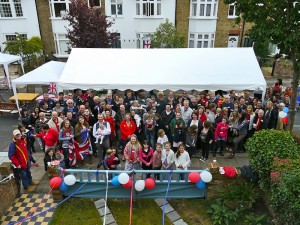In preparation for a lecture, I’ve been mulling over some books and papers on co-operation in human societies. One of my favourites is Paul Seabright’s [amazon_link id=”0691146462″ target=”_blank” ]The Company of Strangers[/amazon_link]. Another is [amazon_link id=”0691151253″ target=”_blank” ]A Co-operative Species: Human Reciprocity and its Evolution[/amazon_link] by Samuel Bowles and Herbert Gintis. This latter book, published last year combines evolutionary theory and game theory to analyse reciprocity. As the authors point out, it is easy to see the benefits of co-operation among groups of humans, in our early history as now – but not so easy to see how co-operation evolved or is sustained, as the costs of reciprocity fall relatively heavily on individuals while the benefits are shared among the whole group.
The question of sustaining co-operation becomes all the more pressing. The problems we face are complicated and global, and will not be tackled without co-operation. Think about climate change, or the continuing economic crisis. The social and economic structures we have built depend on sustaining an almost miraculous level of co-operation – think about the global supply chains for many of the products we have come to depend on, or the fact that more than half of us now live in close contact in massive, cosmopolitan cities. Can the mutual trust and co-operation that has got us here be sustained?
Bowles and Gintis see this as a question about the “distinctive human capacity for institution-building and cultural transmission of learned behaviour.” (p197) They reference Elinor Ostrom’s work on the role of incentives and sanctions in a specific institutional framework in supporting contemporary co-operation. The authors conclude with a reasonable degree of optimism that the forces that made altruism and co-operation a competitive advantage in pre-historic times continue to operate – we are simply better off by co-operating. But, as they conclude, neither private market contracts nor government fiat have ever shaped the actual forms of co-operative economic activity. In a minor way, this was brought to mind by our Jubilee street party on Monday, an entirely self-organised phenomenon, repeated many times over, all around the country.

Diamond Jubilee street party
This kind of co-operation is a question of culture and institutions, which need to develop continually as our economies and societies change. To continue yesterday’s theme, what kind of culture and institutions will support a complex globalized economy facing multiple crises?
[amazon_image id=”0691151253″ link=”true” target=”_blank” size=”medium” ]A Cooperative Species: Human Reciprocity and Its Evolution[/amazon_image]
